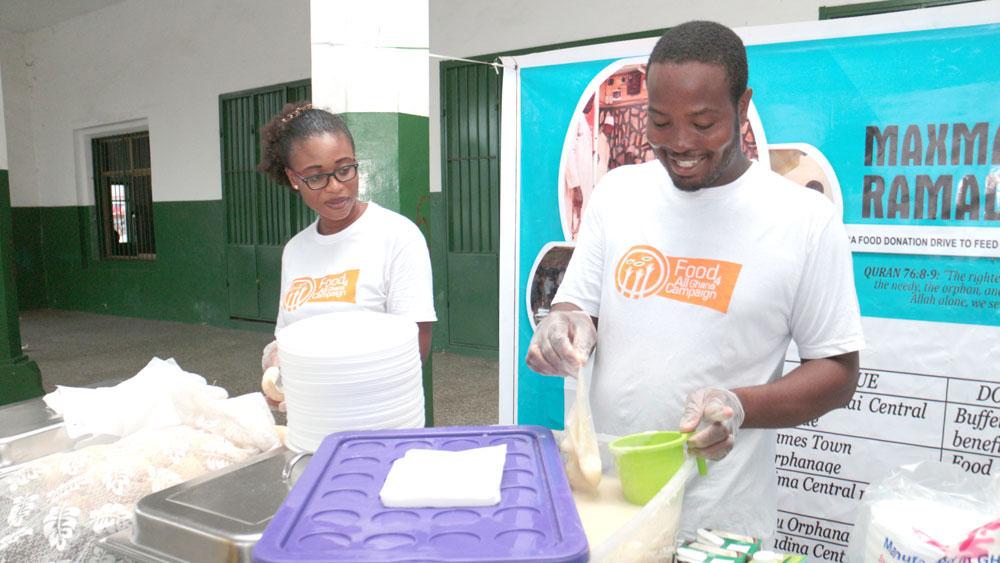In Spintex, a suburb of Ghana’s capital Accra, three women get busy in the kitchen. They’re dressed in white uniforms, wearing hair nets and matching aprons.
Standing by the stove, one stirs hot palm oil with salted fish and golden-brown onions while another woman grinds ginger, garlic and pepper into a smooth paste. They’re also busy making banku, a well-known side dish made of corn and cassava. After almost two hours, the food is ready — and emanates an enticing aroma.
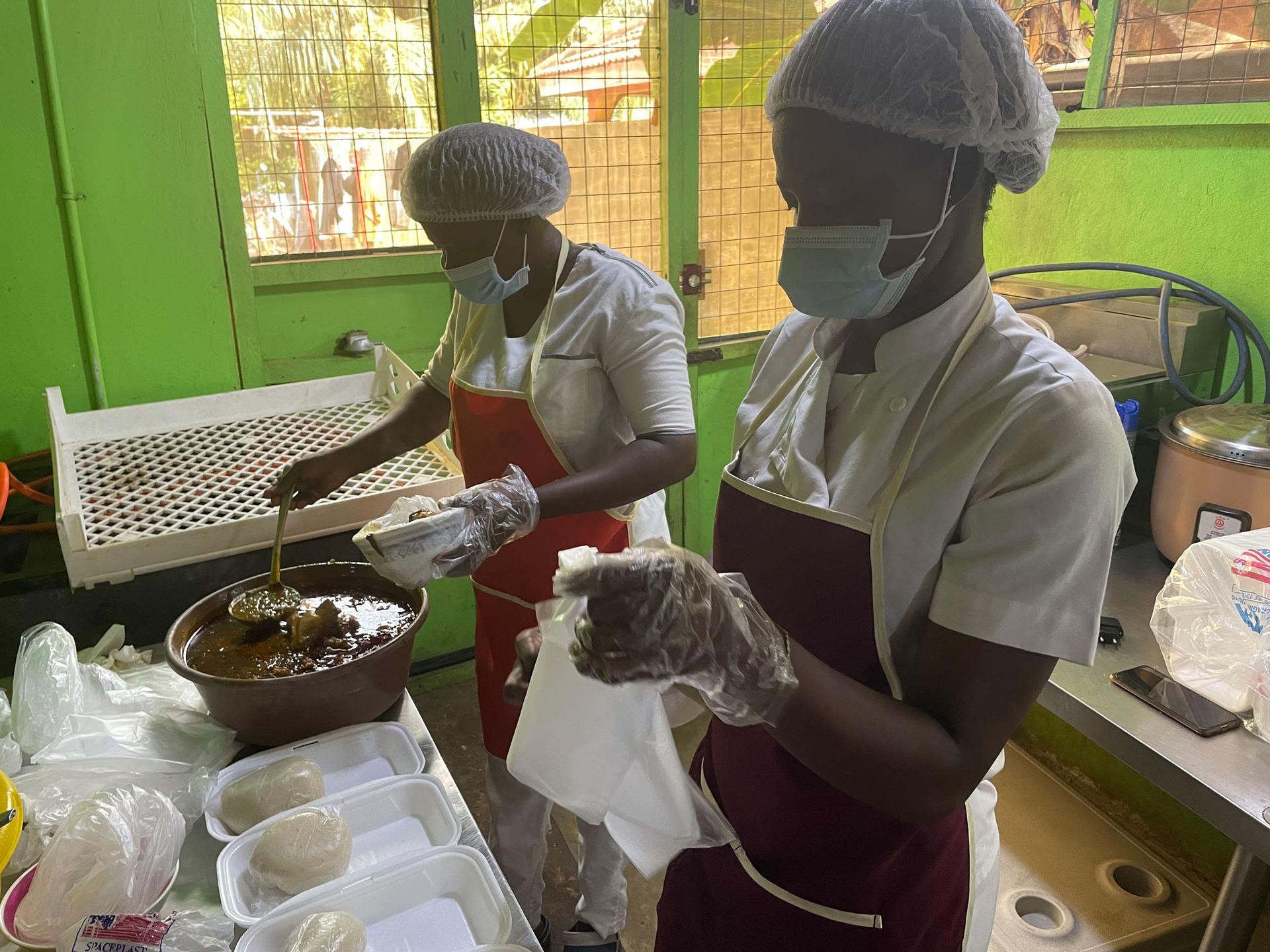
This meal is possible thanks to the vision of Ghanaian chef Elijah Amoo Addo, who, since 2012, has been collecting discarded food from suppliers, farmers and restaurants to feed Ghana’s poor people through his nongovernmental organization, Food for All Africa.
“Growing up, my childhood ambition was to become a medical doctor. I lost my parents at the tender age of 12. So, after secondary school without any support, I picked up the passion for cooking.”
“Growing up, my childhood ambition was to become a medical doctor. I lost my parents at the tender age of 12. So, after secondary school without any support, I picked up the passion for cooking,” Amoo Addo said.
Many countries in Africa face food insecurity, and the situation has worsened due to the COVID-19 pandemic. According to the United Nations, over 280 million people in Africa are currently hungry and malnourished. West Africa alone accounts for 31 million of that grim statistic.
Experts have attributed this crisis to an explosive mix of rapidly increasing food prices, conflict and insecurity.
Related: Only 1 in 7 households in Ghana has a toilet. Communities are fighting to ensure sanitation for all.
According to UNICEF, malnutrition triggered by COVID-19 could kill 283,000 more children aged under 5, leaving 13.6 million more children with severe malnutrition and another 3.6 million developmentally stunted. Approximately 4.8 million more women will also become more anemic over the next three years.
At the same time, about 1.3 billion tons of food is wasted each year and about 800 million people lack access to sufficient, nutritious food, according to the Global FoodBanking Network. Food can be either lost or wasted throughout the supply chain, from initial agricultural production down to final household consumption, according to a 2011 UN Food and Agriculture Organization (FAO) study.
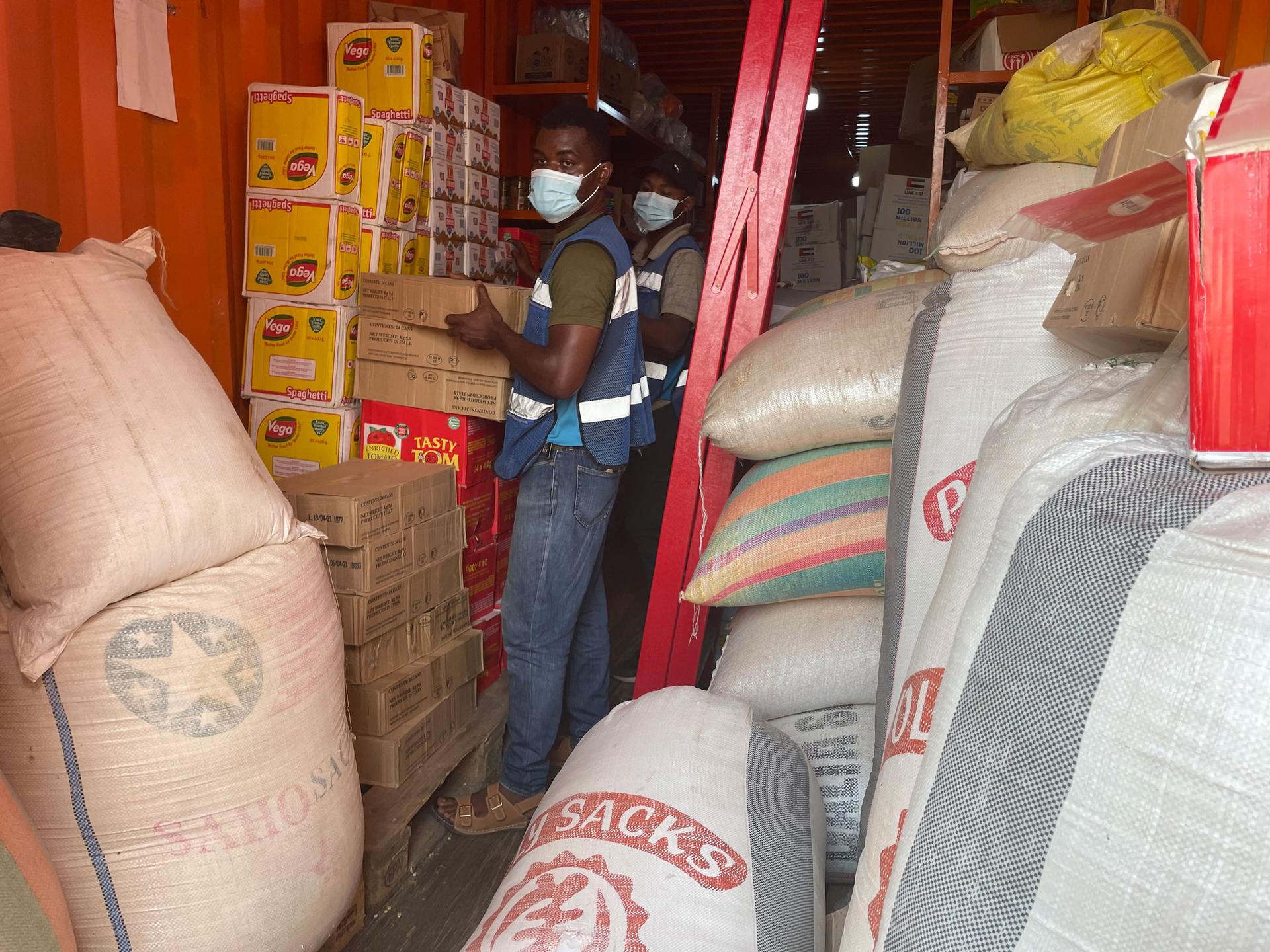
Food waste also causes a carbon footprint of an estimated 3.3 billion tons of carbon dioxide equivalent to greenhouse gases released into the atmosphere per year.
Chef Amoo Addo first contemplated food insecurities in Ghana when he was 21, after learning to cook from his mother and then as a cleaner at a restaurant.
On his way to work one day at a top restaurant in Accra, Amoo Addo came across a man collecting leftover food from a garbage bin behind the eatery. Out of curiosity, the young chef asked what the man was doing.
“And his response to me was, if he doesn’t do it, who will?” Amoo Addo said.
The man was collecting surplus discarded food to feed others living on the streets.
That’s where his passion for Food for All Africa began. Amoo Addo later started providing food for orphanages and psychiatric hospitals. Now 31 years old, he runs his program full time, employing more than 30 people.
In 2017, Amoo Addo received the Young Leaders Award from Queen Elizabeth II in the United Kingdom for his contribution toward reforming Ghana’s food distribution system to reduce waste, overcome hunger and alleviate poverty and malnutrition.
“That singular opportunity of receiving an award from her majesty has encouraged and helped in shaping and scaling the work that we currently do at Food for All Africa,” Amoo Addo said.
Related: How the West’s obsession with fast fashion compounds an environmental nightmare in Ghana
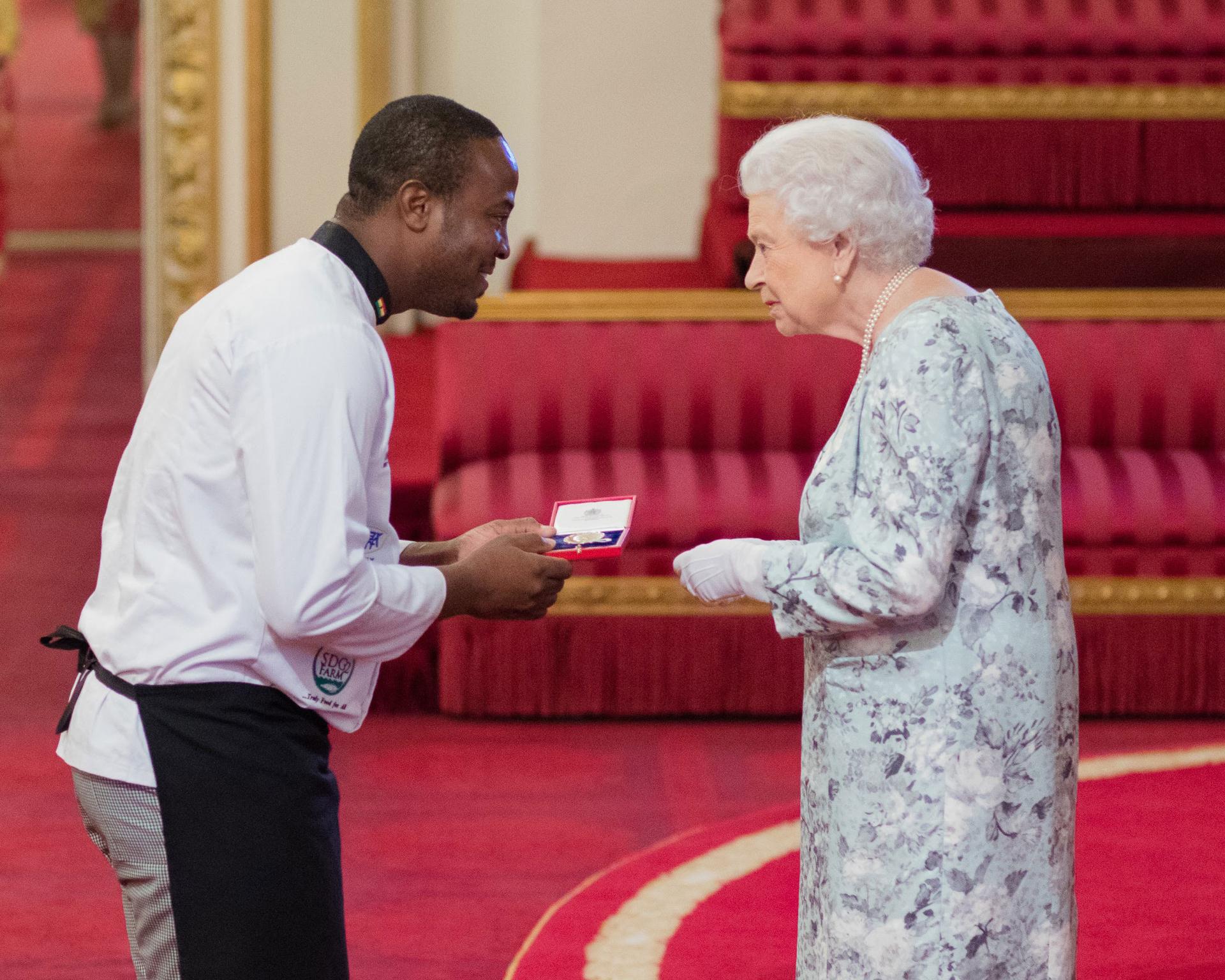
Ghana’s inflation rate increased to the highest in more than four years in November at 12.2%, as food and transport costs have skyrocketed.
The local cedi currency has declined almost 5% against the dollar this year, pushing up import costs. According to the World Food Program, as many as 1.2 million people in Ghana are food insecure with an additional 2 million people extremely vulnerable.
The National Development Planning Commission also found that 24% of all child mortality cases in Ghana are associated with undernutrition, racking up an estimated $2.6 billion in annual related costs.
And malnutrition remains the underlying cause of nearly half of all child deaths under 5, globally, but less than 1% of global foreign aid covers nutrition.
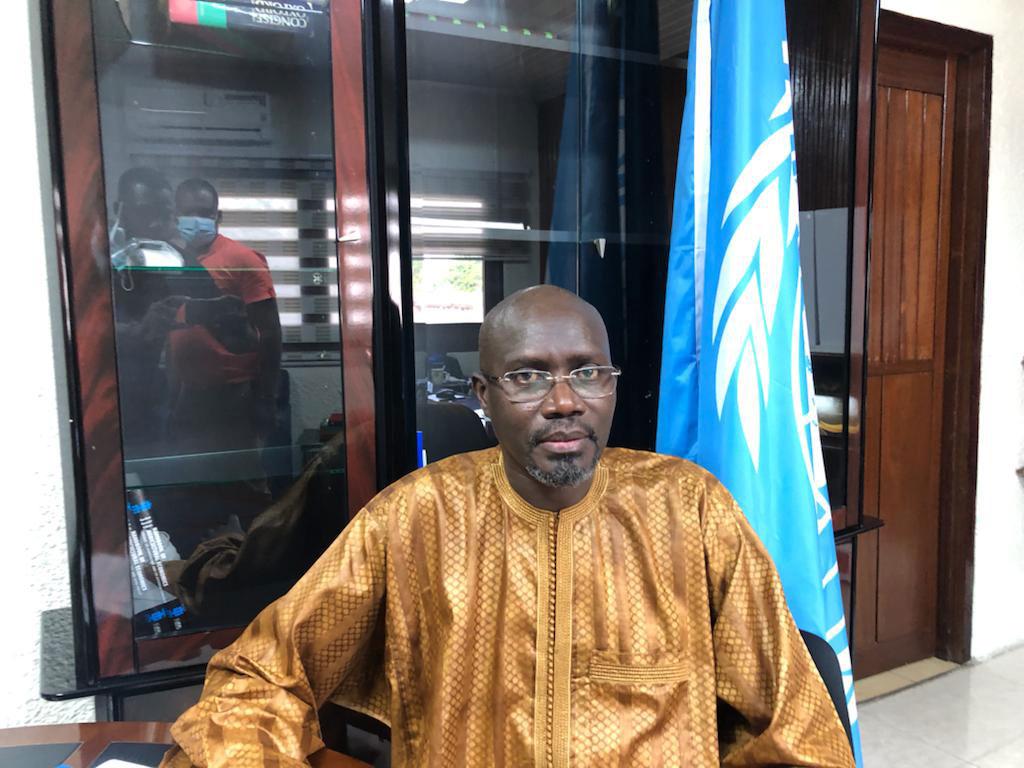
“Millions of people live with hunger and malnutrition because they simply cannot afford to buy enough food,” said Ndiaga Gueye, acting representative for FAO.
“They cannot afford nutritious food or cannot even afford the farming supplies they need to grow enough food,” Gueye said.
Amoo Addo and his team have found a variety of ways to reach those who are food insecure in Ghana.
In Accra, the capital, the team travels around in branded mobile vans that carry hundreds of food packages and hot meals to distribute to low-income families, the elderly, the mentally ill and other vulnerable groups.
Moving through the densely populated community of Ashaiman, for example, large groups scamper for a spot in long queues as the vans arrive.
“On a daily basis, we support over 8,500 beneficiaries,” Amoo Addo said. “For our hot meals program, we provide 500 hot meals daily.”
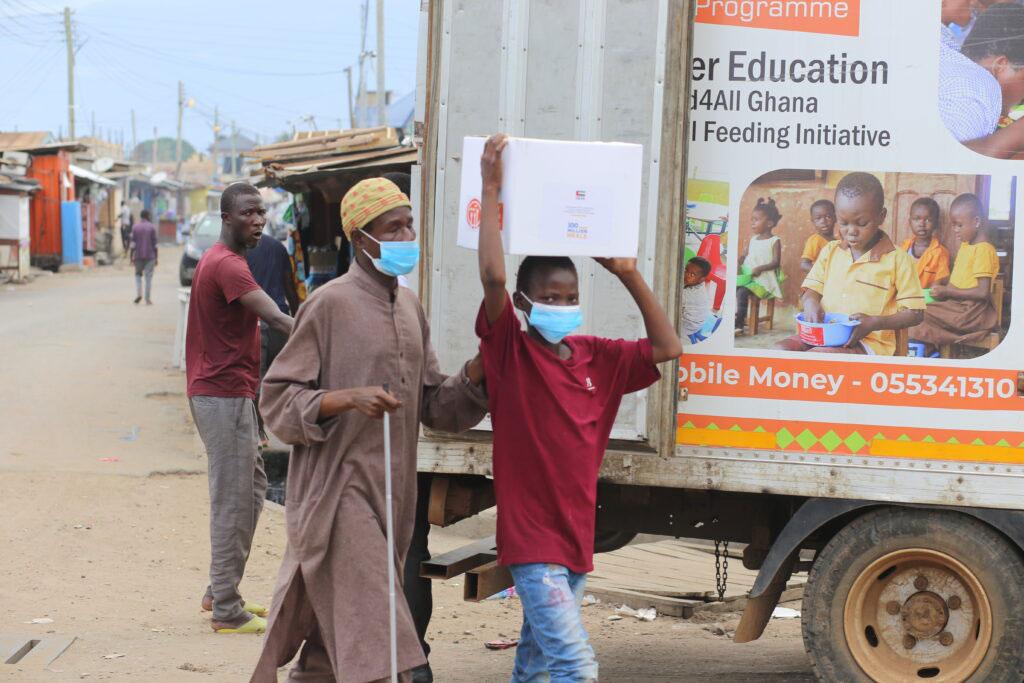
Amoo Addo and his team have also developed an app aimed at making it easier for those who have food to donate it to those in need.
“The food is really delicious. Previously, we could go days without food because I lost my job as a laborer. But this program has been a lifesaver. God bless the man behind it.”
“The food is really delicious,” said Efo Mawuli Kafui, a beneficiary. “Previously, we could go days without food because I lost my job as a laborer. But this program has been a lifesaver. God bless the man behind it.”
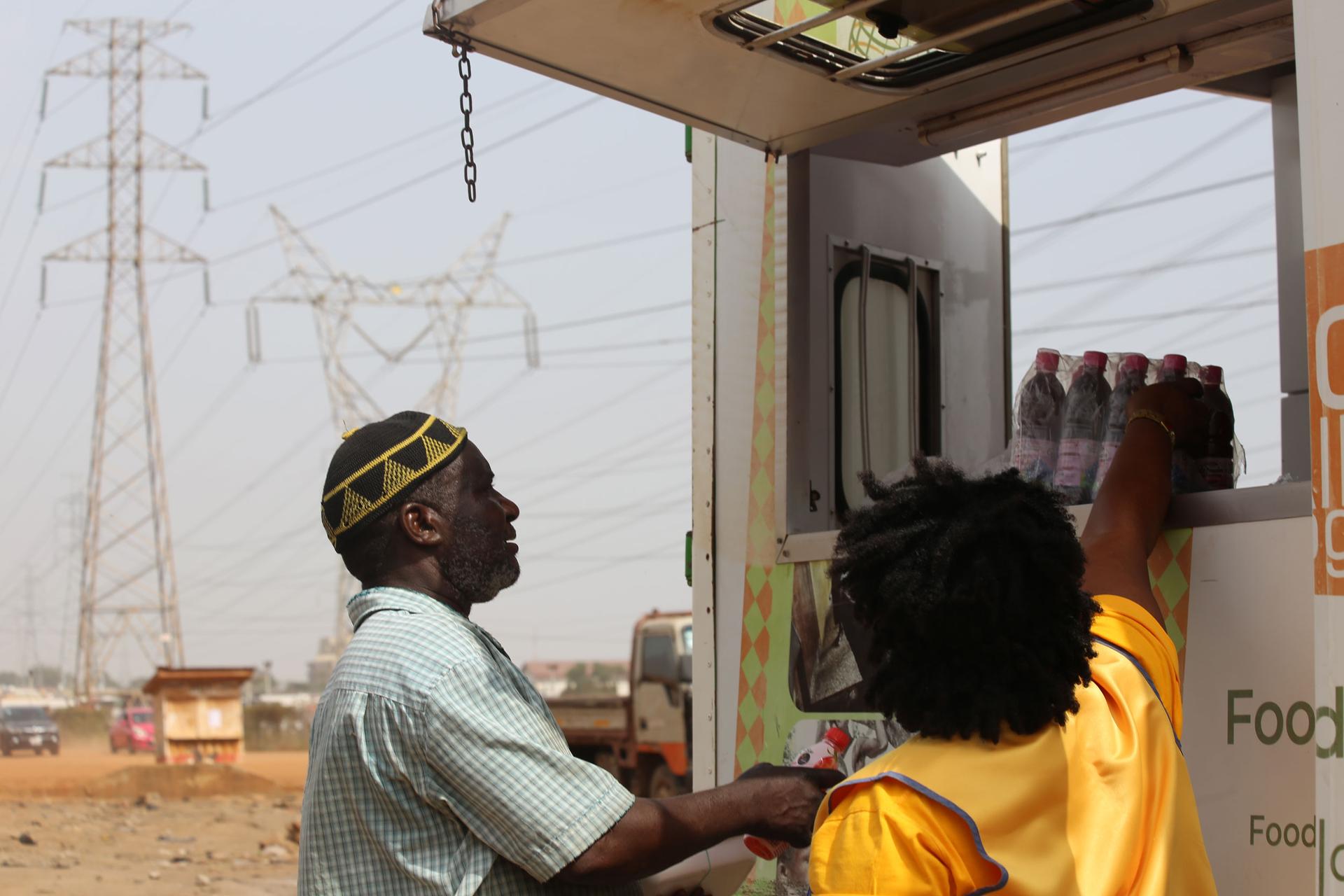
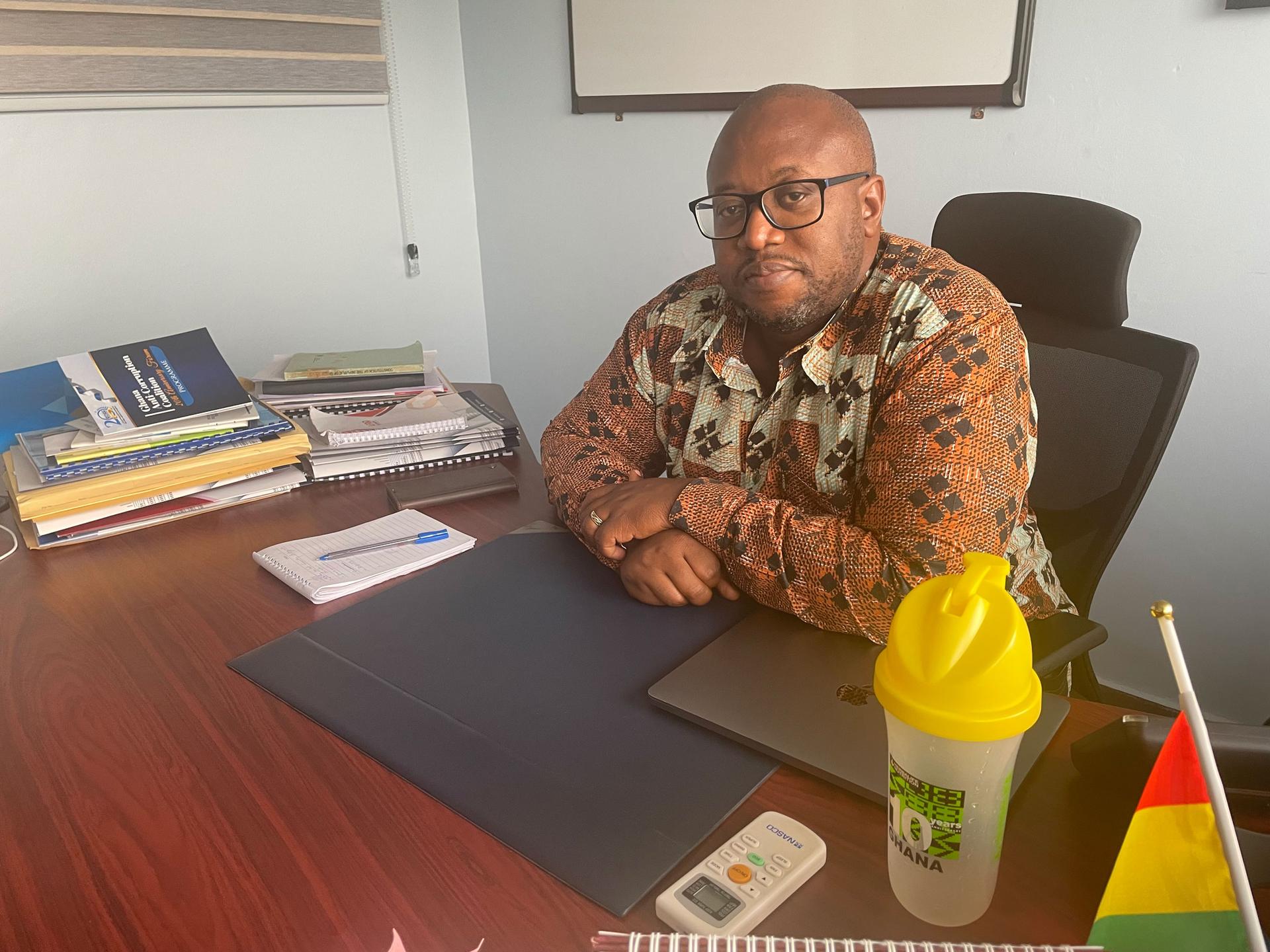
Dr. Kojo Asante Pumpuni, with the civil society organization, Ghana Centre for Democratic Development, has heaped praise on Amoo Addo’s initiative.
“For a chef that could basically be anywhere in the world and succeed, to do this kind of work, he has a passion for it and I expect that he will continue to do this. He just needs more people to recognize and support him to do what he does best,” Pumpuni said.
Amoo Addo is convinced his efforts will inspire others and help Ghana and by extension Africa realize the UN goal to eradicate hunger.
While the pandemic impact on food security has yet to be fully mapped, a UN multi-agency report estimates that about a tenth of the global population — up to 811 million people — were undernourished in 2020.
The number suggests it will take tremendous efforts like Amoo Addo’s for the world to honor its pledge to end hunger by 2030.
“In times of crisis, as we are faced with COVID-19, food banks have always risen to the occasion to be a lifeline to those who are vulnerable. We will be able in the next few years to create a more sustainable means of nutrition across communities because issues of hunger must be solved at the community level.”
